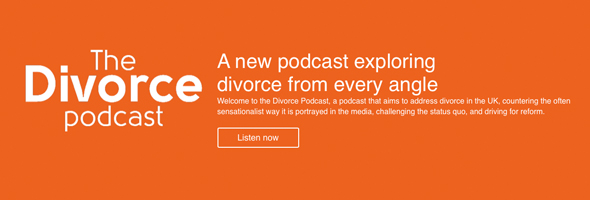New Protection Against Stalking

- This blog contains affiliate links, which we may receive a commission for purchases. The decision is yours, whether or not you decide to buy.
Protection against stalking: I’ve long thought that to be the victim of stalking must be a particularly horrendous thing.
To be constantly in fear and to have your personal life invaded by a stranger is a terrible blight to endure. Sometimes, of course, the victim can suffer for years. And on some occasions, as we all know, the stalker might harm or even kill their victim.
Stalking Protection Orders
On Monday this week, the provisions of The Stalking Protection Act 2019 came into force. The Act introduces a further route of protection for victims: Stalking Protection Orders, or SPOs for short. Before I explain what SPOs are, a little background.
The first thing that needs to be considered is the question: what is stalking?
One might think that the answer is obvious, but who had thought of all of these examples of stalking behaviour, as set out by the Home Office in its consultation on introducing an SPO back in 2015:
- Unwanted communications in the form of telephone calls, letters, e-mail, fax, SMS instant text messaging, graffiti, social networking websites;
- Loitering near the victim or where they live or work;
- Spying on the victim;
- Following the victim;
- Accosting the victim in private or public;
- Entering the victim’s home or workplace;
- Sending or leaving materials or gifts;
- Ordering or cancelling goods and services
- Making vexatious complaints;
- Threats;
- Property damage; or
- Violence.
Until 2012 there was no specific offence of stalking. It was dealt with under other legislation that was not designed specifically with stalking in mind.
That changed in November 2012 when the Government introduced two new offences of stalking into the Protection from Harassment Act 1997: stalking and stalking involving fear of violence or serious alarm and distress. Apparently, prosecutions under these offences are increasing.
However, as the consultation also said: “the actions of a stalker can appear innocuous early on and it can be challenging to identify the signs of the developing fixated nature of stalking in the early stages where intervention could be more effective.”
The consultation, therefore, sought views on whether the introduction of a new SPO would provide further opportunities for the police to protect victims and deter perpetrators before reaching the stage where a charge can or should be brought. Obviously, the consultation was successful and the Act was passed.
Criminal offence
SPOs can be applied for by the police if they are satisfied that the defendant has carried out acts associated with stalking; that they pose a risk of stalking to another person; and that the order is necessary in order to protect the other person from that risk.
An SPO can impose both prohibitions and requirements on the perpetrator, as are necessary for the purpose of preventing them from carrying out acts associated with stalking.
It can prohibit them from doing something, such as contacting or approaching the victim, and it can require them, for example, to attend a perpetrator intervention programme.
Breach of an SPO is a criminal offence, which can be punishable by imprisonment.
- The SPO is designed for use particularly in cases where existing interventions are not always applicable, namely when:the stalking occurs outside of a domestic abuse context, or where the perpetrator is not a current or former intimate partner of the victim (so-called ‘stranger stalking’); or
- the criminal threshold has not, or has not yet, been met (such as while a criminal case is being built), or (crucially) the victim does not support a prosecution.
The intention of the Act, we are told, “is to provide the police with an additional tool with which to protect victims of stalking and to fill a gap within the existing protective order regime.”
And that, I think, is the point. SPOs may or may not be commonly used, but they will at least add an extra tool to deal with the scourge of stalking. As Suky Bhaker, Acting Chief Executive of the Suzy Lamplugh Trust said on Monday:
“Today is an important step forward in the way stalking is handled in England and Wales and an acknowledgement of the suffering victims of stalking can face.
“We welcome the introduction of Stalking Protection Orders and hope to see the new order complement the existing legislation to ensure that victims receive a proactive response when they come forward and report stalking.”
I’m sure we all agree with that and hope that such a response will reduce the suffering that stalking victims have to endure.
This article originally appeared on the Stowe Family Law Blog
You may also like
Books
Buy now from Amazon
- The Power of Positive Energy
- Manifest: The Sunday Times bestseller that will change your life
- Parenting Apart
Podcast
Kate Daly is co-founder of amicable and host of the The Divorce Podcast. Kate created The Divorce Podcast to discuss and demystify divorce, separation and co-parenting in the UK. In each episode, Kate is joined by experts in their field to explore divorce and separation from every angle.
Articles
- Divorce Mediation Explained
- 7 Things You Should Think About Before Filing For Divorce
- Is Online Mediation Right For You?
Videos
Practical advice and tips from professionals on what to do with issues and challenges around divorce from parenting to finance.
Events
Practical tips & advice designed to help people going through divorce, whether online or in person.
Useful links
Here's a selection of organistaioins from parenting to finance to help you with your divorce.
Legal professionals
Related Posts
-

Divorce And Friendships: Navigating Shared Social Circles
-

Managing Divorce Post-Christmas: Unveiling The January Surge In Separations
-

Thriving Through The Holidays: A Guide To Resilience And Self-Discovery After Christmas, Separation, And Divorce
-

5 Rights Of A Child After Divorce
-

Six Ways A Divorce Coach Can Transform Your Divorce Journey


.jpg)
.jpg)



.jpg)

